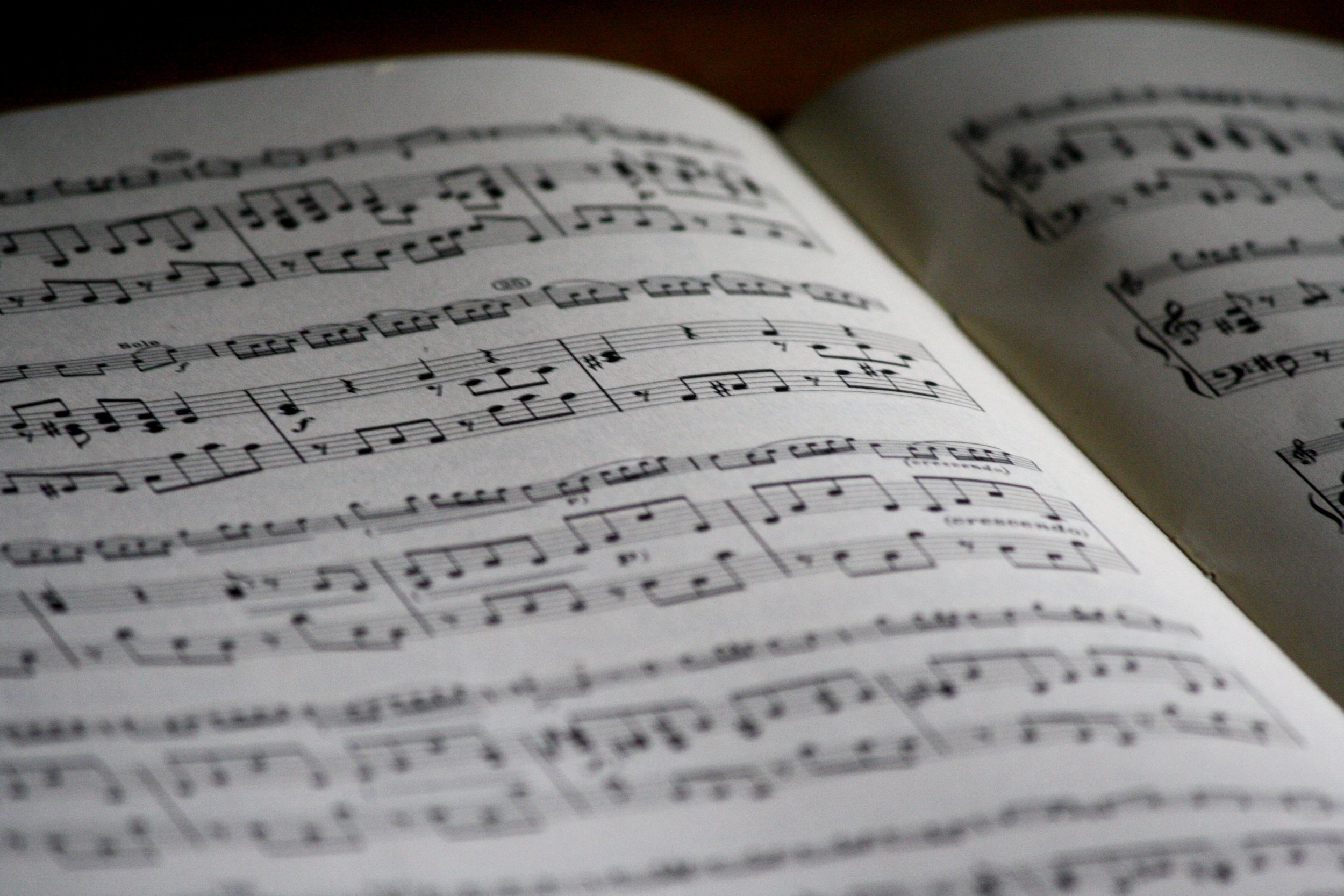A problem:
There's so much humanity squeezed into every song — ideas, stories, and feelings! Music activates some of our deepest cognitive plumbing. It draws us into the inner experiences of other human beings, some very unlike us.
Music contains multitudes. And what do schools use? Textbooks!
Even worse: Music divides people. What music we each listen to becomes a tribal shibboleth: high school classes split into rock, hip-hop, and country. We use music to divide others into "like us" or "not like us". Our culture makes us musically insular.
Our basic plan:
Each day, our classes will listen to a new song — and we'll use it to do wonderful things.
Songs will reflect much global diversity — we'll have a cappella and acid rock, alternative country and bluegrass, blues and boogie, bossa nova and breakbeat, calypso and classical and country music. And that's just up to the letter 'c'!
Over the course of 12 years, at the rate of 1 new song per day, students will become acquainted with something like 2,000 new songs — some they'd have run across anyway, but many they wouldn't have.
After students listen to the song together (perhaps twice — once without lyrics, once with), the song will be added to a "music station" in the classroom: a set of headphones and a iPod. There, in independent work time, students can re-listen to the songs they'd like and carry out a series of works.
Students can choose to listen attentively, paying close attention to a single facet: the rhythm, the instrumentation, or the melody. Can they tap out the beat? Can they name all the instruments used? Can they hum the melody, or re-create it on a synthesizer?
Or they can put everything they hear together and focus just on the feeling that the song evokes. Could they express that feeling in non-representational drawing? Could they try to explain how the song makes them feel that way? (This would be an excellent entrée to music theory.)
Another series of options would allow students to focus on the lyrics. What do the lyrics say? What do they mean (can the student summarize them)? Can the student pull a Weird Al, and write a hilarious parody of them? Can the student use the melody to write a song that helps other students memorize some aspect of the curriculum — the names of all the nations or the parts of a cell?
Or students could go beyond the song, research the story behind it (how was it conceived? how did people take to it?), the story of the people who created it, and the story of the genre as a whole. They could also critique it. Is it a great song? Why, or why not?
Our goals:
Part of our goals is to forge a common culture in our schools. We want to make it easier for kids to connect with each other across the usual lines that divide people (socio-economic class, ethnicity, religion, age, etc.). We also want to make it easier for students and faculty to connect together, and cultivating a common culture. We want to help students connect with adults outside the school — their parents' and grandparents' generations in particular. Finally, we want to help kids connect with people across the world.
Shared musical experiences can play a part in accomplishing all of this — a small part, to be sure, but a meaningful one all the same.
If you walk into our classrooms, you might see:
Kids liking, loving, and occasionally hating music — all together, or all by themselves.
Some specific questions:
- How should we pick the songs? I see three major options:
- Option A: Each teacher decides. If we go this route, each day's song could become a means for the teacher to share her/himself with the students. Love is a virus, and spreads through people.
- Option B: The whole staff decides at the beginning of the year. If we go this route, each day's song could help knit together students across age ranges.
- Option C: It's centrally decided for the whole school. If we go this route, we relieve teachers of the responsibility to pick out songs. If we consult with some musical experts, we could also ensure a greater diversity of world music.
- A song every day, or every other day?
- How many times a day should we play the primary song? One seems too few.
- Are there legal issues here we should be aware of?
- It'd be cool to offer access to these songs to parents, so they can use the songs to bridge the generational divide as well.
